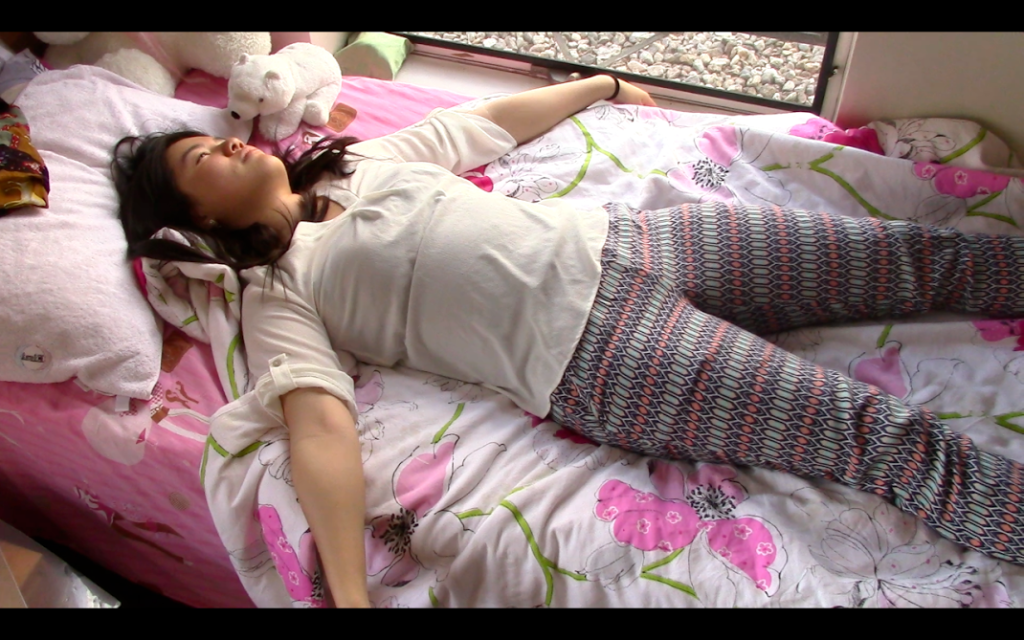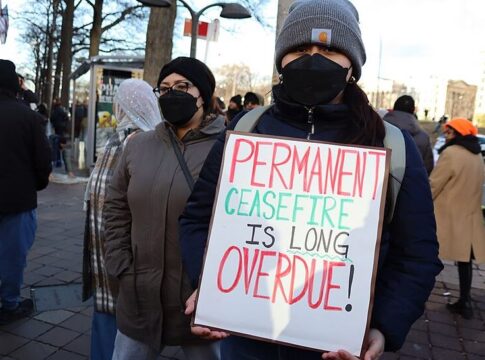By Sahar Hakim-Hashemi
When I was 12 years old, my family immigrated to the US from Iran. My father, being a math professor, wanted for my brothers and I to grow up in the US so we could have a chance to attend the best universities in the world. He sent us to a challenging college prep school so that we could reach our highest potential academically. During high school, I was very dedicated to my studies, especially in the math and sciences. My science research in high school won many awards at science fairs, and I was at last able to get accepted to my dream school, MIT.
My first year at MIT was very exciting, as I became friends with so many other well-achieved and unique peers. I joined many different clubs and activities that I was passionate about. I was looking forward to immersing myself more and more for the next four years into the many opportunities that were provided for me at MIT.
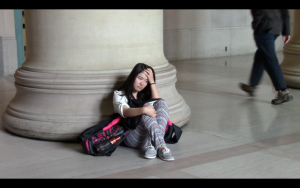 Unfortunately, my four years at MIT were not even nearly close to what my fantasy had been. Each semester that passed, my mental health issues became worst and worst. I became more and more depressed. My anxiety was out of control by my fourth year at MIT, and I had become so numb that I didn’t even feel like I wanted to be alive anymore.
Unfortunately, my four years at MIT were not even nearly close to what my fantasy had been. Each semester that passed, my mental health issues became worst and worst. I became more and more depressed. My anxiety was out of control by my fourth year at MIT, and I had become so numb that I didn’t even feel like I wanted to be alive anymore.
LATEST STORIES
When I graduated, my priority was not to get a job, go to graduate school, or accomplish something tremendous. I hoped desperately to recover from my mental health problems so that I could be able to live a happy life in the future.
After my graduation, I kept remembering the pressure, stress, anxiety, and overwhelming nature of my life at MIT and the lives of many of my friends and peers there. It seemed like most of my friends, classmates, and peers had also been suffering in some form or another during their time at MIT.
I decided to send an email to the MIT campus and ask students to share their stories about their daily challenges on camera. The rate of student responses was so high that I joined with a group of MIT students and alumni to make a documentary titled Sleep is for the Strong, which shares the stories of student struggles and explores common issues faced by many MIT students.
The goal of the documentary is to raise awareness and spark a conversation among students and the MIT community about the need for healthier student lifestyles. Too often, students at MIT are pressured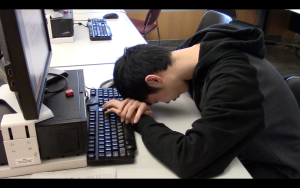 by their peers to sleep very little and live a life that revolves around academics, without paying attention to other aspects of life that also matter. For example, one famous student mantra at MIT says, “sleep is for the weak,” and I always thought this motto was dangerous for student health, because sleep-deprivation can contribute greatly to depression, anxiety, and other health problems in college students (see here). That is why I decided to name the documentary Sleep is for the Strong in order to bring attention to the fact that getting enough sleep is very important and actually helps students perform better in school.
by their peers to sleep very little and live a life that revolves around academics, without paying attention to other aspects of life that also matter. For example, one famous student mantra at MIT says, “sleep is for the weak,” and I always thought this motto was dangerous for student health, because sleep-deprivation can contribute greatly to depression, anxiety, and other health problems in college students (see here). That is why I decided to name the documentary Sleep is for the Strong in order to bring attention to the fact that getting enough sleep is very important and actually helps students perform better in school.
Since MIT is home to many other Asian American students, some of them have shared their stories in the Sleep is for the Strong documentary. The following are some excerpts form their stories.
“MIT is a very intense place. Sometimes you forget that you need to rest to get recharged,” said Coyin Oh, during her senior year. “I feel like if I had more time for myself, I would have had a better MIT experience, in terms of level of happiness,” said Oh.
“A 90-hour work week is actually not at all uncommon. That’s actually pretty average at MIT,” said Avanti Shrikumar, a recent MIT graduate.
Some students said they felt pressured to take more classes than they could handle to show that they are “hardcore.”
During his sophomore fall, Daniel Wang took 6 classes, which he doesn’t want to repeat. Wang said, “I didn’t know how my friends were doing. They didn’t know how I was doing. I spent much of my time in my room. I realized I’m not willing to do this anymore. It was soul-crushing.”
When students and alumni were asked if they ever felt lonely or isolated at MIT, almost everyone exclaimed that they did.
“I have felt alone many times at MIT, and I wish that MIT fostered more of a social environment,” said Sarine Shahmirian, during her senior year.
It seems like many students feel isolated due to lack of enough social interactions.
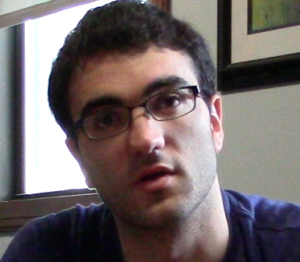
“People are always doing so many things that having a social life and saying let’s get lunch at this time never worked out for me,” said Joey Rafidi, during his senior year at MIT.
“A lot of times when friends came to see me about something, I didn’t always feel like I could devote enough time to them. I always felt like I was short-changing them, because after talking to them for a very long time—sometimes they had very big problems—I would have to go back and do a problem set or go turn in something,” said Cathy Zhang, recent MIT alum.
The extent of isolation on campus was highlighted when we would hear about a student committing suicide in their room and the fact that no one had found out until a week after, when their body had started to smell. One of these students was Japanese American, Satto Tonegawa, the son of a Nobel laureate professor at MIT (see here).
Many of the students and alumni who were interviewed said they experienced mental health issues at MIT.
“I remember always calling my mom on Skype and crying to her,” said Micah Nishigaki, during her junior year. “I felt nervous, anxious, stressed, and pressured,” said Nishigaki.
“Over the four years that I was there, my mental health declined. I just remember being upset a lot and stressed all the time. I couldn’t really cope with it. It became worst and worst,” said Stephen Giandomenico, recent MIT alum.
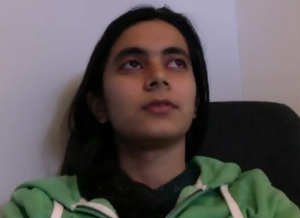
When asked how she felt most of the time at MIT, Avanti Shrikumar responded, “I definitely had periods where I felt suicidal. Even when I wasn’t suicidal, I would catch myself fantasizing about ceasing to exist. I felt kind of miserable most of the time.”
Suicide among students is not unheard of at MIT. Since March 2014, there have been 8 suicides on campus (see here). Particularly, the Asian American student suicide rate at MIT is four times the national average (see here).
This documentary is an effort to reduce student suffering and suicides at MIT and beyond.
As various aspects of student life can be very challenging, the Sleep is for the Strong documentary aims to let student voices be heard at MIT. By listening to each other’s stories, students will be able to notice that they are not alone in their struggles.
This documentary will be screened at MIT followed by discussions on campus about common issues faced by students and solutions for creating a healthier student experience.
You can join our effort and help us finish this documentary by contributing to our Indiegogo Crowdfunding Campaign. You can also share our campaign with friends to help us spread the word. The fundraising campaign ends on December 23rd.
Join us in this movement to stand up for student mental health! Let’s reduce mental health suffering and prevent student suicides!
For more information, visit www.SleepIsForTheStrong.Com


